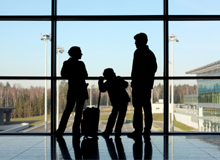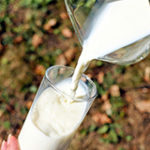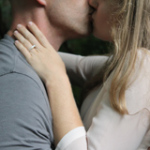Blog

How to Keep Your Family Healthy During Holiday Travel (Or, Somebody Sneezed on my Armrest)
By Nina Shapiro, MD
Author of “Take a Deep Breath: Clear the Air for the Health of Your Child”
Holiday travel with children is a bit like a game of Russian roulette. Or poker. Or even like playing the lottery. The numbers are never in your favor. Kids get up to ten colds per year, most of which are in the fall and winter months. Adults also get a few colds per year, most of which also occur during these seasons, and are well timed to kick in around the holidays. So you don’t need to be a statistics whiz to figure out that there is a decent chance that you and/or your kids may have a cold the week you plan to fly. That said, the BEST way to minimize your child’s chances of getting sick during travel is for him to be well before travel. This is no easy task. But this may be a time where you may want to decide not to bring your brand new bundle of joy or drippy-nosed toddler to the office holiday party, where he will be passed around like a fruit cake, kissed by strangers (or strange co-workers), and unduly exposed to everyone’s lingering or imminent cold virus. And remember, many of your co-workers either haven’t gotten around to, or have chosen not to, receive a flu vaccine. If you have an infant who is not yet immunized, he is at high risk to be exposed to and develop the flu virus in this setting.
It is critical, especially before travel time, that you and your family stay healthy, even if you are stressed by work, family, holiday shopping, weather change, or all of the above. Make sure everyone at home gets enough sleep, eats well, and stays hydrated. This is the time to take extra good care of yourself (and your spouse). If this means taking even part of a day off from work, missing a holiday event, or cancelling one soccer game, all in the name of sanity and wellness, do it.
Assuming that the stars are aligned, and you, your family, and your kids are healthy, now you all need to stay that way while you and 250 of your closest friends breathe in that lovely recirculated dry air at 35,000 feet. Here are some tips for health in the air:
1. If you can swing it, buy your child his own plane ticket. While children under age two years may sit on an adult’s lap, the safest and healthiest way for a child to travel is in his own seat. Your baby doesn’t sit on your lap in a car, so why should he on an airplane? He will have his own space (his infant car seat or booster), minimizing his ability to touch all of the seats and armrests around him, he will be able to sleep more comfortably, and you can still take him out from time to time. He will also be more sequestered from a neighbor’s seat. The FAA requires that babies and toddlers in car seats are given window seats. Since you will be next to him (and stuck with a middle seat for this and all foreseeable future flights), there is no chance that one of those sneezing passengers will be at his side.
2. Bring extra baby wipes. While these may not be as ‘eco-friendly’ as hand sanitizers, you can wipe down surfaces as well as body parts as needed.
3. Bring saline nasal spray. It cuts down on chances of getting a cold. (Don’t share these with family members—you should each have your own bottle, labeled with each person’s name). Spray your child’s nose once or twice before take-off, and every two hours (when he’s awake) during the flight. NOW aren’t you glad he’s restrained in his car seat?
4. Spray your own nose as well, every two hours. Feel free to use the airplane lavatory to do this in private.
5. Drink lots of clear liquids. This goes for everyone, and more so for moms who are breastfeeding.
6. Do not drink alcohol, especially if you are breastfeeding.
7. If you or your child is a bit congested before the flight, check with your doctor if it’s safe to use oxymetazoline (Afrin®). This is a nasal decongestant spray. It will help prevent congestion from turning into a sinus infection or a worsening cold. It can be used once before take-off, as directed by your doctor. It does not cause sleepiness, nor does it cause extra jitteriness.
8. Don’t forget to place all spray bottles in a 1-quart size clear plastic bag in your carry-on bag. These will need to pass through security as a separate item, and all bottles must be 3 ounces or less.
9. Bring acetaminophen (and ibuprofen for babies six months and older), and any prescribed medicines, in your bag of liquid carry-ons.
10. Wash your hands often, or use baby wipes or hand sanitizer. It isn’t just your kids and strangers who carry germs.
11. Happy travels! When you arrive at your destination, baggage claimed and all accounted for, breathe a sigh of relief! Now it’s that family dinner you need to get through. But that’s another story.








